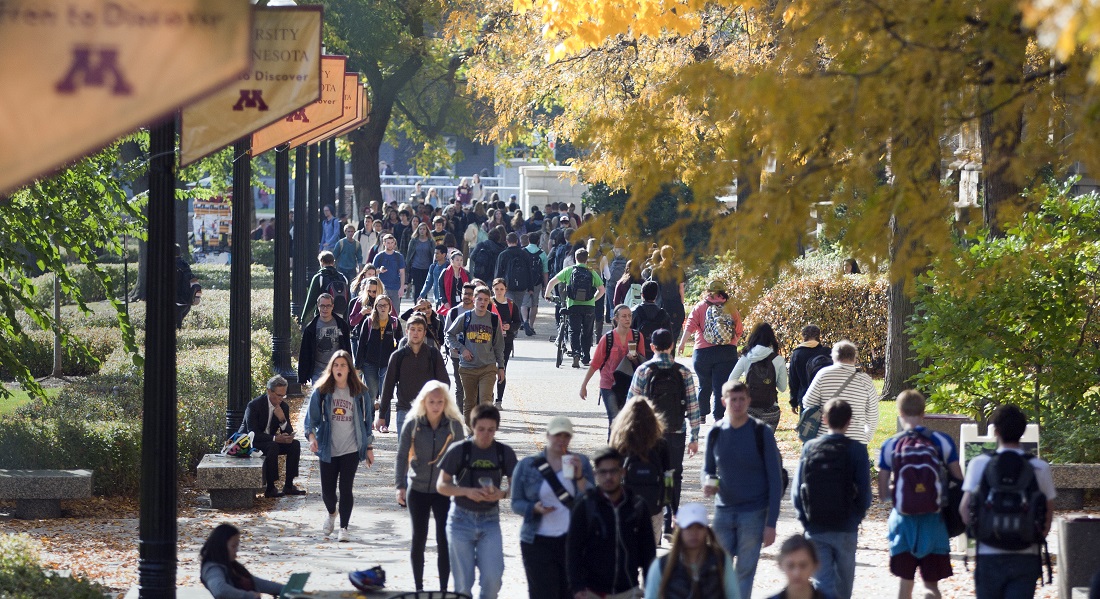Emergency fund for MN college students in need of a major boost, advocates tell higher ed committee

The early 2020s have been a tough time to be a college student. In addition to all the difficulties that accompanied the pandemic and the Zoom-ification of educational offerings, life became considerably more insecure for students in the areas of housing, food and transportation.
The Office of Higher Education has an emergency fund available for students in immediate need of help in those areas, but its current base appropriation is only $319,000 per year. That would grow greatly under HF467.
Sponsored by Rep. Mohamud Noor (DFL-Mpls), the bill, as amended, would appropriate $7.55 million per year toward emergency assistance for postsecondary students. Of that, $5 million per year would go to the Minnesota State system, while $2 million would be for the University of Minnesota. Another $500,000 would be set aside for tribal colleges and other nonprofit institutions eligible for state financial aid.
Funds appropriated would be available until spent, but, at the end of the biennium, institutions would be required to return any unused funds to the Office of Higher Education.
On Tuesday, the House Higher Education Finance and Policy Committee laid the bill over for possible inclusion in its omnibus bill.
“What we’ve heard from students is that one financial emergency can cause a significant interruption to their academic journey,” said Maya Sullivan, dean of students at Metropolitan State University. “National studies have shown that emergency financial support makes a significant difference in the ability of students to remain enrolled, succeed academically, and ultimately to complete their degree program, and then to contribute positively to our workforce and economy.”
“College students tend to live on very tight financial budgets that they have to stick to to make ends meet every month,” said Siya Sakhardande, a member of undergraduate student government at the University of Minnesota. “This may mean that, towards the end of their budget period, they’re running out of food or request to pay their rent or tuition later because the money just isn’t there.”
Rep. Kristin Robbins (R-Maple Grove) wanted to know what accountability measures are in place for students receiving the grants.
“The money goes to the institutions and the institutions run their own individualized programs,” said Nekey Oliver, director of grants and government relations for the Office of Higher Education. “They know their students best. … Most students are applying for transportation emergencies and housing emergencies. So institutions can issue checks directly to vendors or repair shops, and not directly to the student.”
Related Articles
Search Session Daily
Advanced Search OptionsPriority Dailies
Speaker Emerita Melissa Hortman, husband killed in attack
By HPIS Staff House Speaker Emerita Melissa Hortman (DFL-Brooklyn Park) and her husband, Mark, were fatally shot in their home early Saturday morning.
Gov. Tim Walz announced the news dur...
House Speaker Emerita Melissa Hortman (DFL-Brooklyn Park) and her husband, Mark, were fatally shot in their home early Saturday morning.
Gov. Tim Walz announced the news dur...
Lawmakers deliver budget bills to governor's desk in one-day special session
By Mike Cook About that talk of needing all 21 hours left in a legislative day to complete a special session?
House members were more than up to the challenge Monday. Beginning at 10 a.m...
About that talk of needing all 21 hours left in a legislative day to complete a special session?
House members were more than up to the challenge Monday. Beginning at 10 a.m...